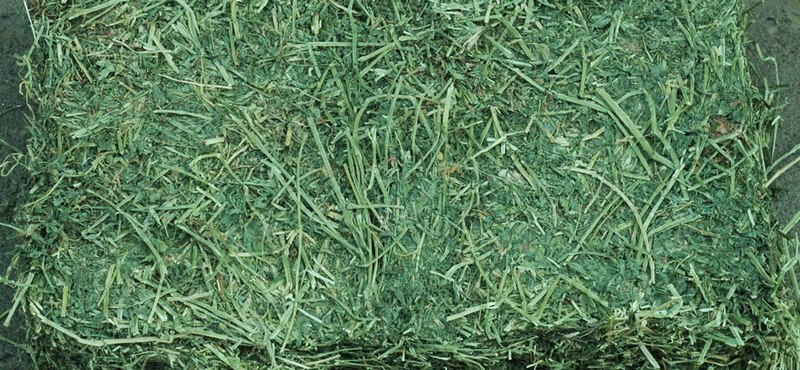Back in the days when I was a young farmer starting out – I’m talking about the early 1980s – I remember attending a conference where the talk was all about the pros and cons of feeding pigs with pellets. The talk came down broadly on the side of a pellet diet for pigs and it has now become the industry standard around our neck of the woods, but I often wondered if the same would apply to horse feed as to pig feed.
The answer seems to be a resounding “yes” from talking to fellow farmers and horse keepers in the Wisconsin rural heartland. The reasons why are multiple but I think that most of all, it’s a case of convenience. Sometimes we need to put away convenience.
There can be no doubt that the like of Timothy balance cubes or alfalfa pellets for horses are convenience foods. They’re so easy to buy and to store, the horses love them; you don’t need to wait for them to grow; you don’t need to harvest them or protect them; you can easily measure what you’re feeding your horse both in quantity and cost in dollars and cents. On the other hand, there are many theories about what it does to a horse’s health long term. Does it cause insulin resistance in horses? Are you okay as long as you give equal doses of fish oil for horses? All these questions play on the minds of horse owners because what we’re dealing with here is a relatively new technology in the world of horse feed. Here, I hope to be able to help to set a few things straight…
Advantages:
Almost all pellets contain food that is cooked. This is a good thing, because similarly to us human folk, horses find that cooked food is easier to digest than raw food. It may be difficult to believe but it is true. What about the grass, you say? Yes, grass is raw when eaten by a horse, but it’s also very light. The pellets are a way of getting easily-digestible nutrients and protein in more concentrated form into your horse.

The cost of pellets is another advantage. Pound for pound, pellets offer far better value per calorie than just about any other feed horse that you can think of. Beet pulp is another one that has similar value, but you need to have variety in your diet and the variety of pellets on the market is growing by the week. In fact, the older horse will arguably benefit best of all from pellets because it replenishes a lot of nutrients that it would not otherwise be able to get, therefore improving its health and prolonging its life.
Another advantage that mightn’t spring immediately to mind is the fact that pellets won’t attract vermin or flies when left lying around. I love spring and horses!
Disadvantages:
The first thing is that you are at the mercy of unscrupulous or unprofessional producers. Remembering the fact that you’re dealing with technology that has only been around for a few decades, you need to know that the manufacturer of your choice is someone with a strong reputation. Maybe you know a neighbor that has been using timothy balance cubes for a long time without and problems? Perhaps you’re someone whose horses have been fed on only organic horse feed up to now? If so, then you’ve got to be extra careful when switching diet. A sudden change in diet can often lead to difficulties such as insulin resistance in horses.
Either way, the one big disadvantage remains that you’re putting the health of your horse in the hands of someone else so tread carefully and confidently.



